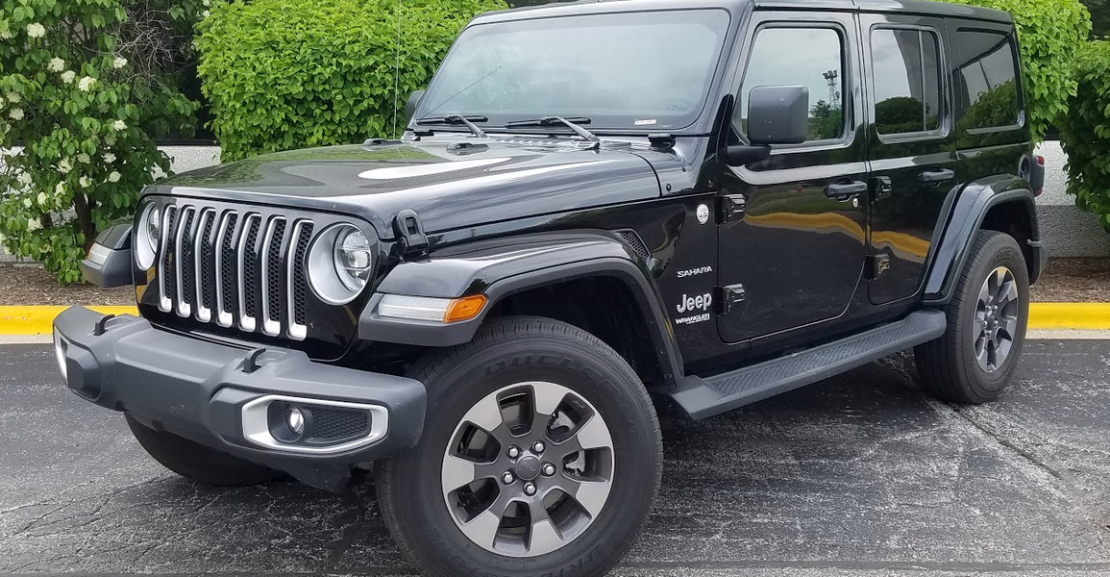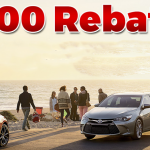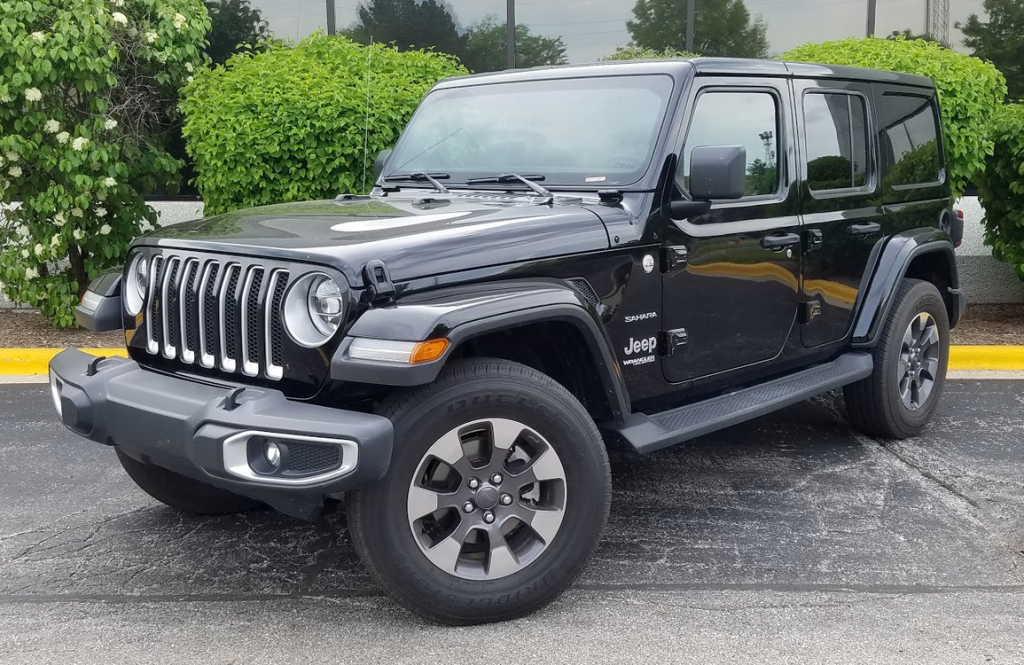
 2018 Jeep Wrangler Unlimited Sahara
2018 Jeep Wrangler Unlimited Sahara
Class: Compact Crossover
Miles driven: 700
Fuel used: 35.7 gallons
Real-world fuel economy: 19.6 mpg
Driving mix: 50% city, 50% highway
EPA-estimated fuel economy: 18/23/20 (city, highway, combined)
Base price: $37,345 (not including $1195 destination charge)
| CG Report Card | |
|---|---|
| Room and Comfort | B |
| Power and Performance | B |
| Fit and Finish | B |
| Fuel Economy | C |
| Value | C |
| Report-card grades are derived from a consensus of test-driver evaluations. All grades are versus other vehicles in the same class. Value grade is for specific trim level evaluated, and may not reflect Consumer Guide's impressions of the entire model lineup. | |
| Big & Tall Comfort | |
| Big Guy | C+ |
| Tall Guy | C+ |
| Big & Tall comfort ratings are for front seats only. "Big" rating based on male tester weighing approximately 350 pounds, "Tall" rating based on 6'6"-tall male tester. | |
Options on test vehicle: Leather-trimmed seats w/ leather-wrapped shift knob and parking-brake handle ($1495), Cold Weather Group ($895), Trailer Tow and HD Electrical Group ($795), LED Lighting Group ($895), Electronic Infotainment System Group ($1295), Jeep Active Safety Group ($795), hard top headliner ($525), Trail Rail Management System ($195), all-weather floor mats ($130), 8-speed automatic transmission ($2000), Selec-Trac full-time 4WD system ($595), limited-slip Dana 44 HD rear axle ($595), keyless entry ($495), Freedom Top removable hard top ($2095), 18-inch “Tech Gray” polished alloy wheels ($895)
Price as tested: $52,235
Quick Hits
The great: One-of-a-kind character; rugged, go-anywhere attitude; redesign brings many improvements in day-to-day comfort and convenience
The good: Open-air features; improved fuel economy over previous-generation Wrangler
The not so good: Steep pricing; standard equipment levels are rather stingy; on-road driving manners are improved over outgoing model but still not as refined as the rest of the compact-SUV class
John Biel
Would you pay $52,235 for a compact sport-utility vehicle with a hard ride, lofty step-in for passengers, and no door detents? How about $38,540? If not, what if we told you it’s a Jeep Wrangler? Would that change your mind?
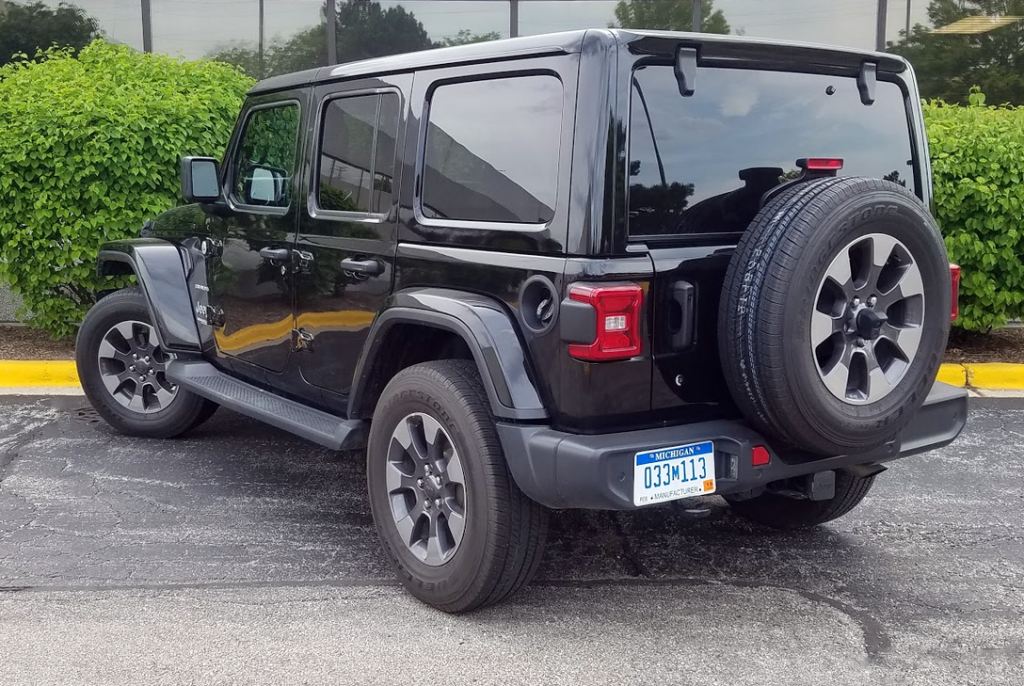
Those are questions to which the Jeep Division of Fiat Chrysler Automobiles would like to know the answers. The Wrangler, with its iconic Jeep appearance, has been fully redesigned for 2018. It has been improved in a number of ways but, as Consumer Guide has pointed out, base prices have increased roughly $3000 from what was asked for the amply ticketed 2017 models. If there is a cost ceiling that will give Wrangler intenders pause, how high is it?
Test Drive: 2017 Jeep Wrangler Unlimited Chief
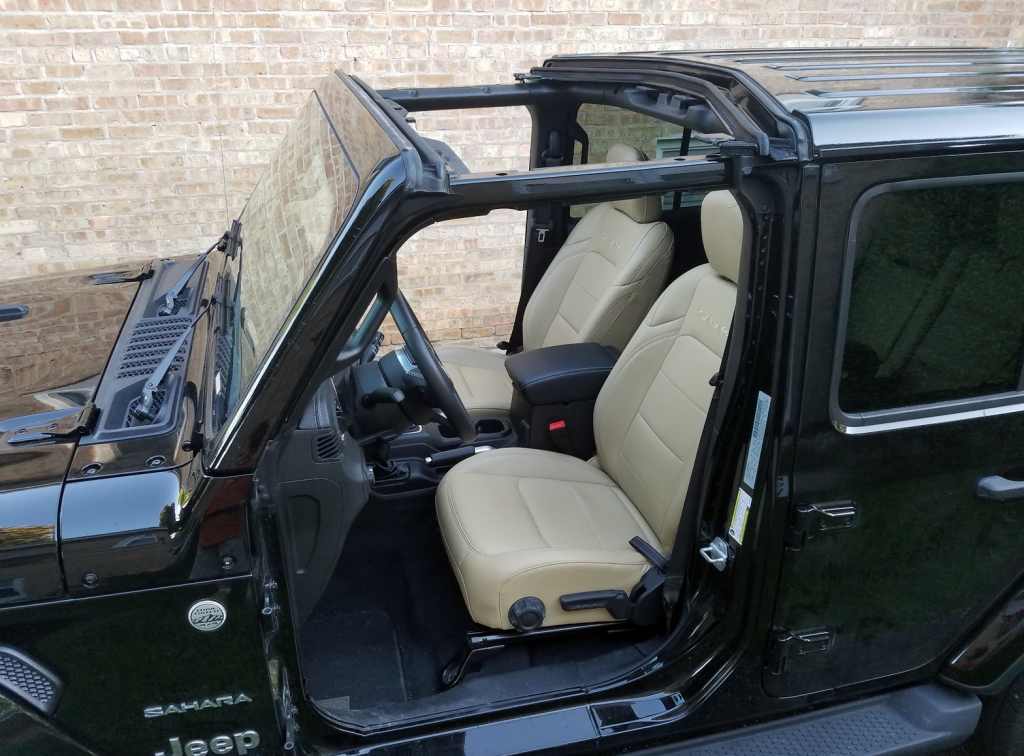
The figures bandied about at the start of this review are hardly random. They are, respectively, the final price and the base price (with delivery) of the ’18 Wrangler Unlimited Sahara tested by Consumer Guide. Jeep obviously considers the feature-laden Sahara to be the “family vehicle” of the group because it is the only one of the four trim levels restricted to the 4-door Wrangler Unlimited body—the others can all be had as either an Unlimited or a shorter 2-door job. Only the 4-door Rubicon, which is outfitted with the most extreme off-roading gear Jeep has on hand, costs more.
First Spin: 2018 Jeep Wrangler
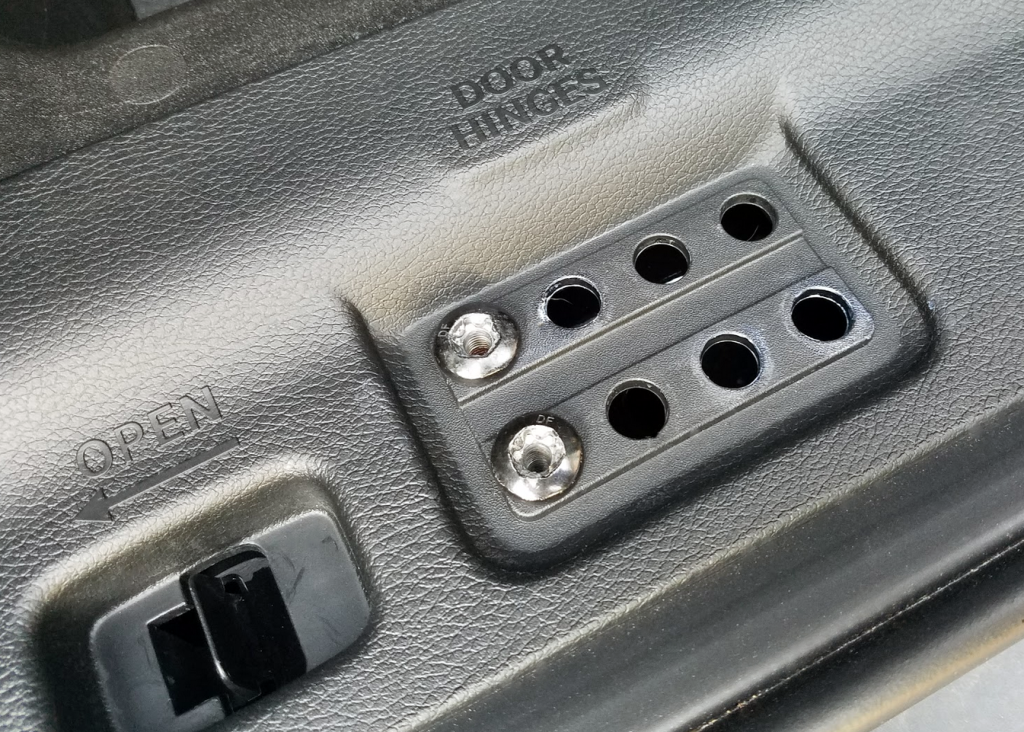
Wrangler’s all-new body-on-frame platform retains a steel body structure, but with doors and fenders made of aluminum and a magnesium rear swing gate to reduce weight in pursuit of improved fuel economy. Even the new styling was done with this in mind. Make no mistake: The look remains decidedly “jeepy” but is slightly more aerodynamic due to an increased slant to the grille and windshield.
This new Jeep can use all the fuel-conserving help that it can get. For 2018 there’s a standard stop/start function and an optional 8-speed automatic transmission (that’s three more gears than the previous autobox). While EPA ratings for the base V6 are slightly improved—with the automatic they are 18 mpg in the city, 23 on the highway, and 20 combined—they’re still not stellar. And they might be hard to meet. Consider that this driver recorded just 16.77 mpg in a stint of 133 miles with 76 percent city-style driving. Note that the Wrangler is now available with a 2.0-liter turbocharged 4-cylinder engine with Chrysler’s “eTorque” mild-hybrid system.
In addition to the V6, the Sahara’s standard mechanical complement includes a 6-speed manual transmission, “Command-Trac” part-time 4-wheel drive, Dana-built drive axles front and rear, 18-inch alloy wheels and 255/70R18 all-season tires, heavy-duty suspension with gas-filled shock absorbers, and heavy-duty 4-wheel disc brakes. Skid plates undergird the engine, transmission, and 21.5-gallon fuel tank. Functional options added to our test vehicle included not only the automatic trans with hill-descent control but convenient, automatically engaging “Selec-Trac” full-time 4WD (new to the Wrangler for ’18) and an anti-spin differential for the rear axle.
External features of the Sahara run to side steps, body-color fender flares, automatic headlamps, and power-adjustable heated mirrors. An extra-cost 3-piece “Freedom Top” hardtop matched to the test vehicle’s Black Clear Coat paint replaced the base cloth roof. (The $2095 Freedom Top comes with a rear-window wiper and defroster, but an interior headliner runs another $525.) Lighting was enhanced with a package of LED lamps all around.
10 Cool Things about the 2018 Jeep Wrangler
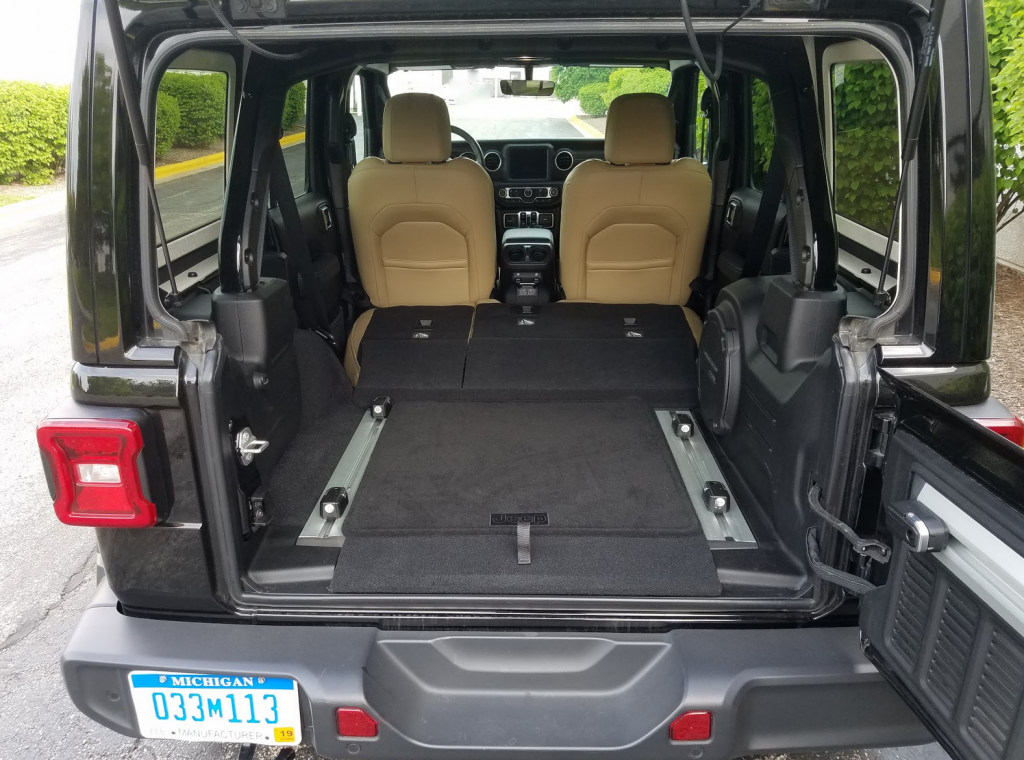
Front seats feature Sahara logos stitched into the backs, whether the upholstery is the standard cloth or the optional leather (in Heritage Tan) that was in CG’s tester. The steering wheel is wrapped in black leather, and a matching grained leatherlike material covers the instrument-panel face. LEDs provide ambient interior lighting. Push-button starting and dual-zone automatic temperature control add convenience and comfort. Doors are removable for a truly open feel but that doesn’t preclude the Sahara from having standard power windows and door locks.
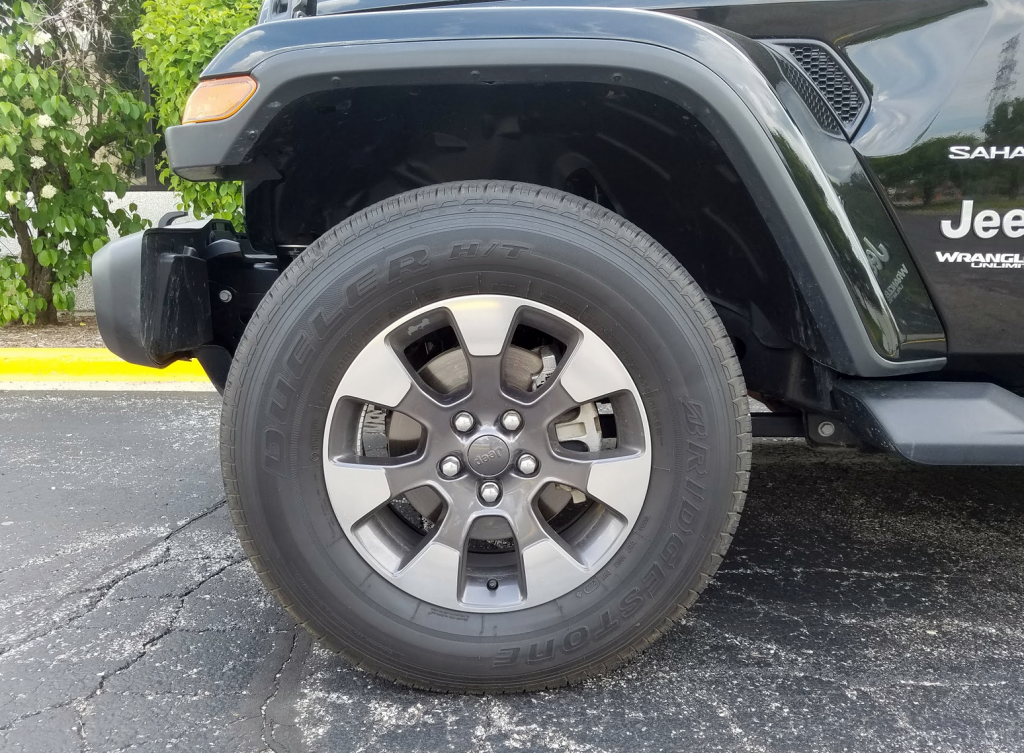
Apple CarPlay and Android Auto smartphone connectivity is a new Wrangler standard feature. Infotainment is the province of Chrysler’s Uconnect 4 system with a 7-inch touchscreen, Bluetooth streaming audio, and satellite radio, but the tested Sahara was upgraded to a version with navigation, an 8.4-inch screen, satellite traffic services, emergency-service contact, and premium Alpine-brand audio. Between the circular tachometer and speedometer dials sits a reconfigurable 7-inch driver-information display. Audio and climate controls are easy to operate.
The 3.6-liter V6 is no stranger to Wranglers. The 285-horsepower unit is a strong, responsive engine. The automatic transmission performed well in this reviewer’s urban commuting. Jeep revised the Wrangler’s 5-link coil-spring suspension for 2018. On-pavement ride seems a little better. Serious bumps stand to thump passengers with some force, but the feel in the cabin is less “busy” overall on smooth or slightly textured road surfaces. Wind and road noise remain perceptible, however.
For all the Wrangler’s rugged personality, seating is pretty comfortable and supportive. Front legroom isn’t overly abundant, but second-row passengers up to around 5’-11” won’t necessarily feel cramped even if a front-seat passenger used all of the available seat-track length. A third adult may fit in the middle-rear seat in a pinch. Headroom under the tall, flat top is ample in either row. Step-in is high and will challenge some passengers even with the external step rails. Thick door pillars impede driver vision to the sides—which probably makes it more likely buyers will want to spring for the Active Safety Group option with rear parking assist and blind-spot/rear cross-traffic detection.
Soft-touch materials with some give are found on the dash face and door panels/armrests. Personal items can go into the square, deep glove box; small console box; net pouches on all four doors; or pouches on the backs of the front seats. Open cup holders reside in the console and the pull-down center armrest. Rear cargo capacity goes from just OK behind the second-row 60/40 split seats to quite spacious when the seats fold flat into an uninterrupted load floor. There’s some additional space in the bin under the floor.
There are definite improvements—particularly of the creature-comfort kind—in this Jeep that can never stray far from the hardy qualities that underpin its heritage. That doesn’t mean it will always stay cheap, however.
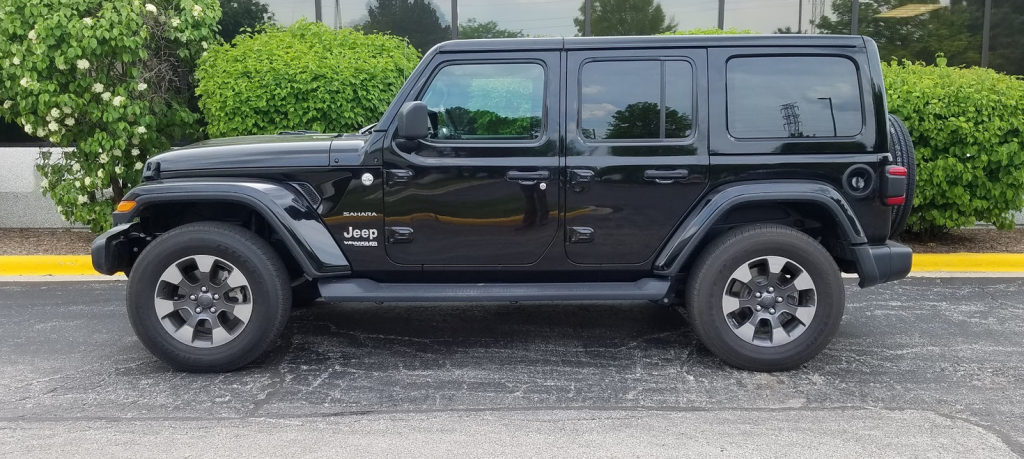
Happy Easter! Jeep Rolls Out Seven Concepts for Holiday Safari

